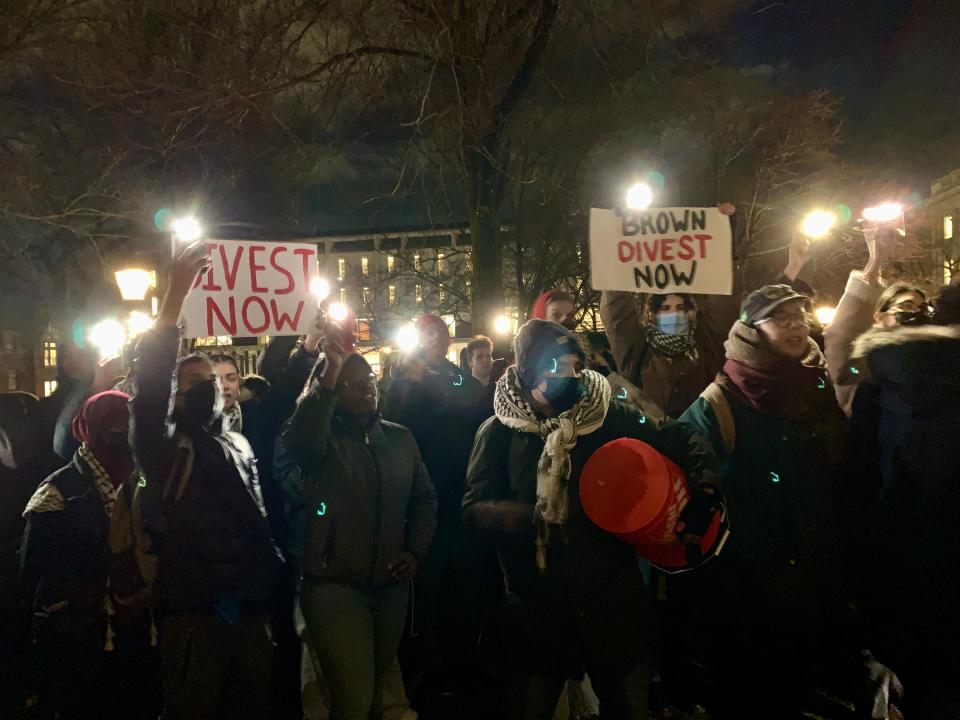Brown University students arrested for pro-Palestinian protest could have records expunged
PROVIDENCE – The 41 Brown University students charged with trespassing during a pro-Palestine protest late last year may have their records expunged in six months for good behavior.
The not-guilty filing against the demonstrators who were arrested in December 2023 while staging a sit-in inside University Hall was issued by Judge Nicholas Parrillo.
Because they remained in the building past business hours, they were apprehended.
"We are glad that the court offered us this outcome and that we won’t have criminal records," said Kate Kuli, one of the charged students and a member of the class of 2025. "However, we want to emphasize that this outcome was against the wishes of Brown University, and we remain disappointed in our university for neglecting to request that charges be dropped as they did for the 20 students in Jews for Ceasefire Now."
University spokesman Brian Clark did not offer any position on the outcome of the case.
"Disposition of the criminal charges was a matter for the court to decide, and our understanding is that the filings imposed resolve the cases, provided each student adheres to a required set of conditions," Clark said.
Background on the arrests
More: City councilors call on solicitor to drop charges against 41 Brown student protesters
Kuli was referring to another sit-in that occurred in November 2023 and resulted in 20 students being arrested and charged with trespassing. However, the charges were subsequently dropped.

In both cases, students were calling for the school to divest from weapons manufacturers as war in Gaza continued. University President Christina Paxson had resisted heeding those calls or dropping the charges. But at the end of April, in a dramatic change of course, Paxson agreed to put divestment up for a vote at an upcoming Brown Corporation meeting set for October. That move came in an effort to clear out a student encampment that had taken hold on the campus green, lasting one week.
More: Brown University protesters agree to clear encampment. In exchange, Brown will vote on divestment.
While the administration did not call police to address the encampment, instead deescalating the situation with the agreement, it had already involved police on campus twice in the recent past.
"Brown was one of the first universities to arrest students for advocating for divestment from genocide this academic year, effectively signaling to other institutions that calling the cops was an appropriate response," Kuli said. "Because of this, I feel it is necessary to reflect on the way that activists at other campuses are being arrested more brutally, on a larger scale, and potentially without the privilege of their cases being resolved in the way that ours has."
Bella Garo, a senior who was one of the 41 students arrested, said Brown made the agreement on the divestment vote "to save face" and avoid interferences with the upcoming commencement. The next step, Garo said, is to contact Brown Corporation members and urge them to meet with students to discuss divestment.
This article originally appeared on The Providence Journal: What happened to Brown University's pro-Palestinian protesters?

